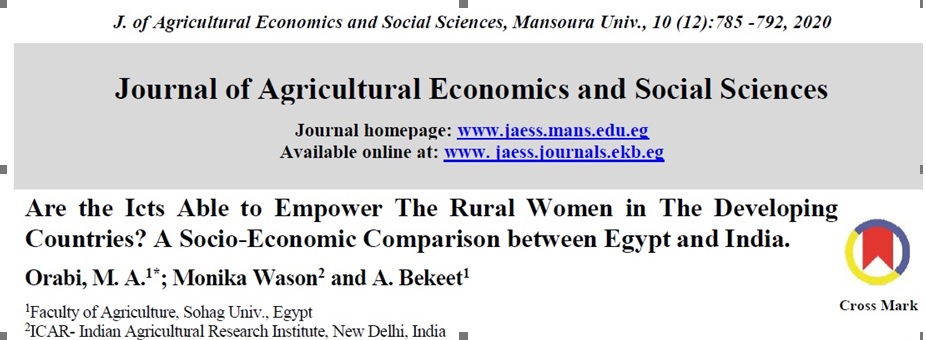Information and Communication Technologies (ICTs) have been increasingly promoted as a key solution for comprehensive development, poverty eradication and the empowerment of historically disadvantaged groups, such as women and minorities in the world. ICT-based initiatives and projects have been hailed as “potential goldmines” for women’s empowerment. However, research and experience shows that to be successful, initiatives and projects must balance the need to overcome structural barriers to women’s advancement with sensitivity to the limited space within which many women in the world navigate. In this paper, we review literature on ICT and the social as well as economic empowerment of women, drawing upon two empowerment initiatives and programmes from two developing countries (i.e. India and Egypt) as case studies to compare the gender empowerment status through such ICT- based initiatives in the developing nations. Some of the findings have been found such as: 1) Government and institutional support is a major factor that affect the gender empowerment, 2) The women societal involvement has to be targeted while forming a smart empowerment strategy, 3) The ICT- based training is one of the most required activity towards gender empowerment, 4) The ICT- based initiatives are opening a wide arena for both women and men. We anticipate that the insights outcomes from this study will be useful both for purposes of effective program development and policy design from both the two countries especially as well as the world generally.


